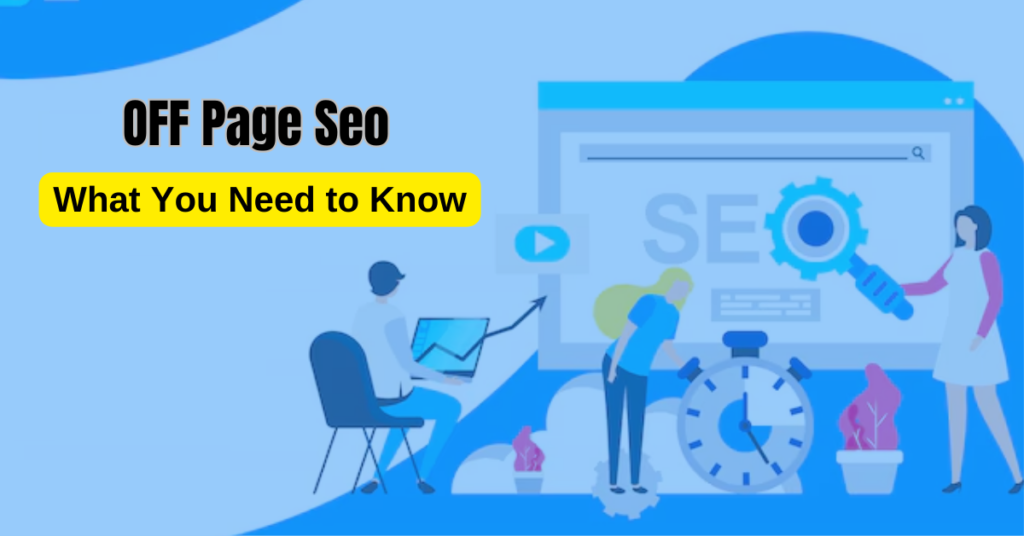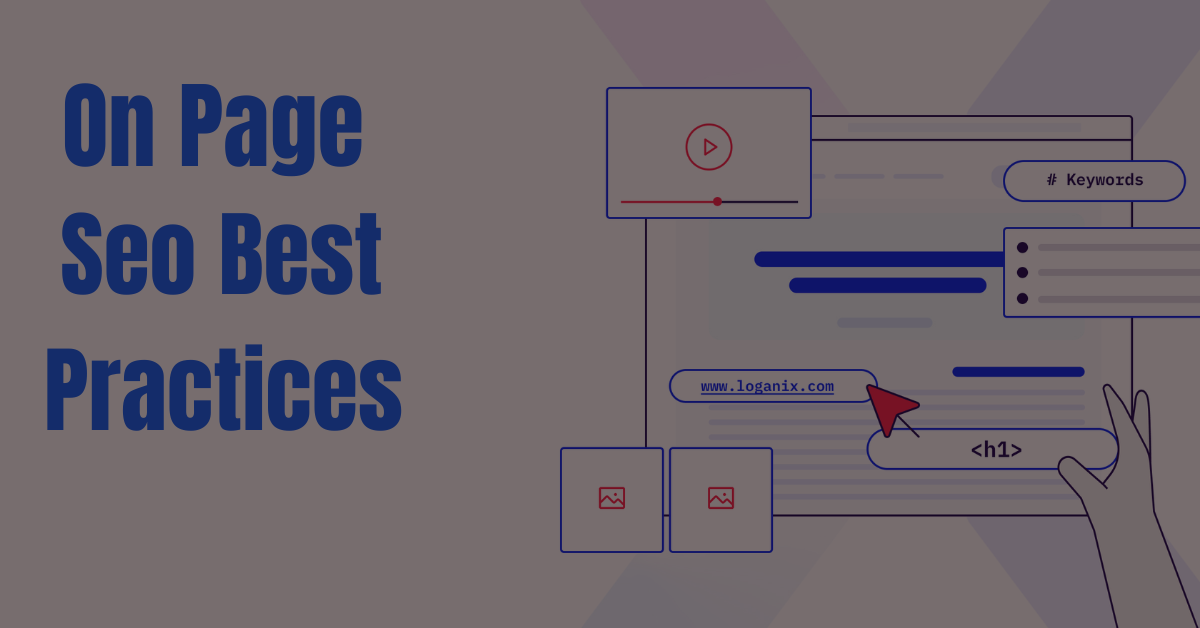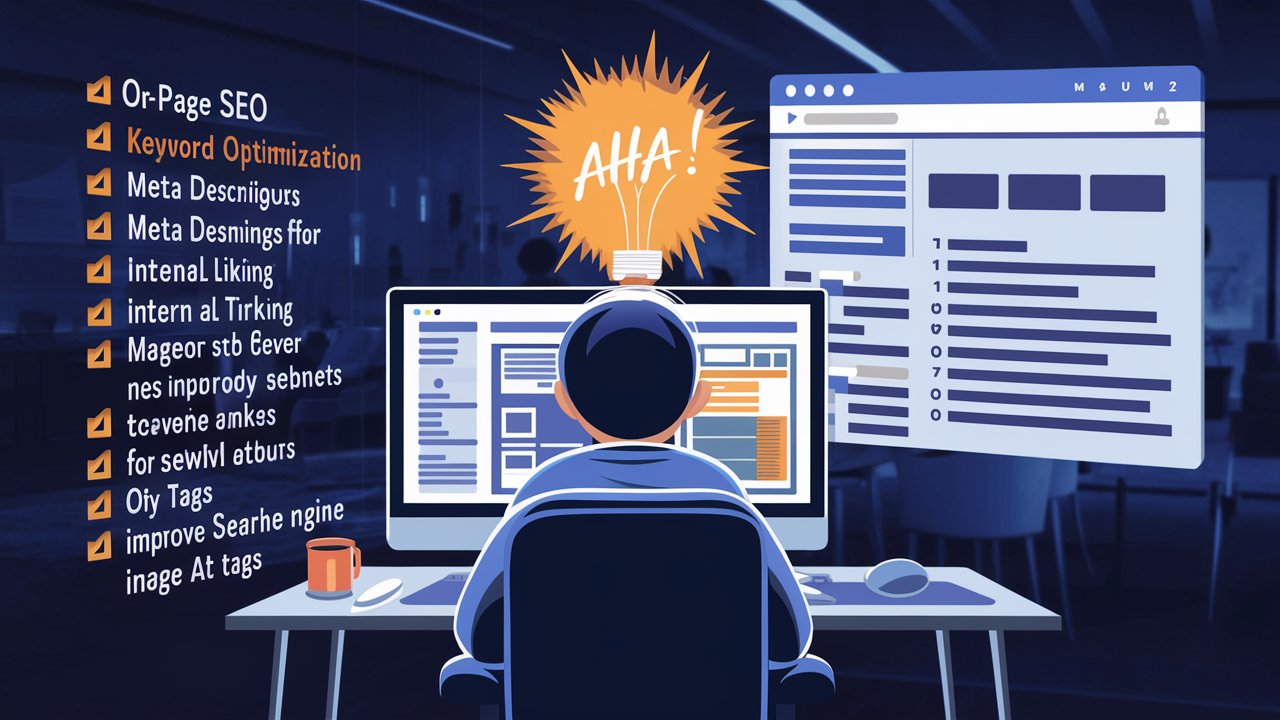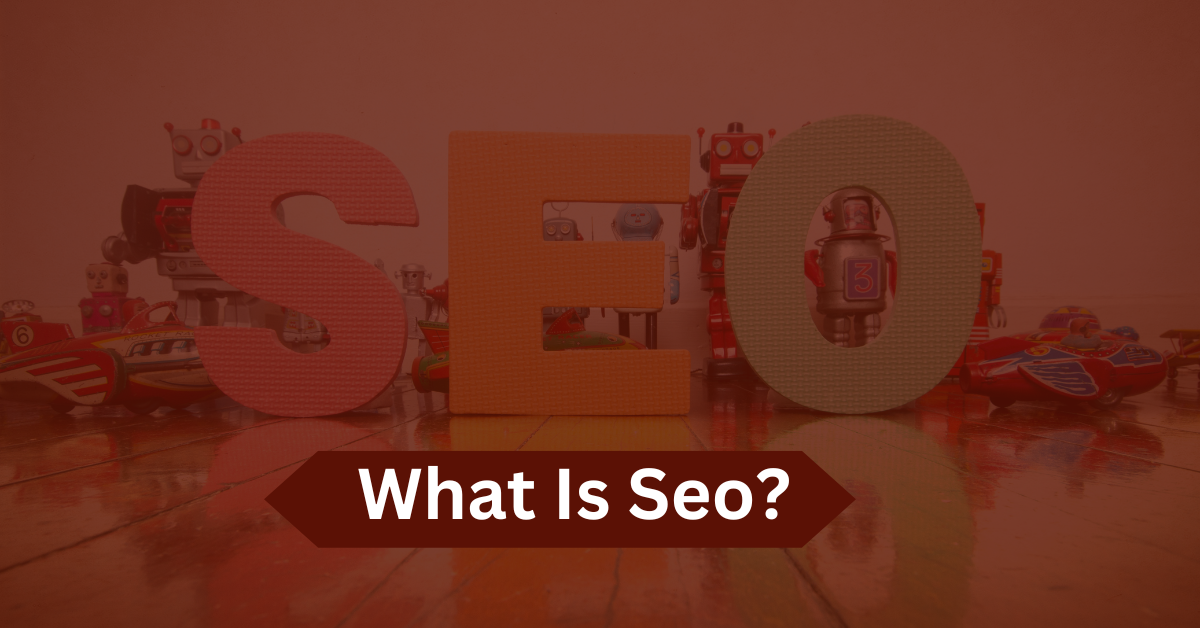
You’ve been in the SEO game for a while now. You know all the basics – keyword research, site structure, internal linking, meta tags, etc. But recently you’ve been hearing more and more about something called “off page SEO.” What is it, and do you really need to worry about it? Everything you do to encourage other websites to link to and discuss your website is referred to as off-page Seo. It used to be all about spammy guest posts and link exchanges. But Google’s algorithm has gotten smarter. In 2024, off page SEO is about high-quality content, brand mentions, and earning genuine links. This article will catch you up on the latest off page SEO best practices so your site can keep ranking in 2024 and beyond.
In 2024, What Is Off Page SEO?
The process of making website improvements to rank higher in search engines like Google is known as off-page SEO. It concentrates on factors other than your website, such as enhancing your business listings, increasing social media shares, and building strong backlinks. Getting more organic traffic means ranking higher in search results.
Make Excellent Backlinks
Backlinks are external connections that redirect visitors to your website. Acquiring trustworthy backlinks from websites in your industry is crucial since Google considers them as “votes” for your website. Look for domains that are both relevant and have a lot of authority. You can improve the quantity of backlinks you obtain by participating in guest blogging, building relationships with influencers.
Enhance the social share
Google is alerted by those who use social networks to share content. Include social sharing buttons on your site to entice your users to share your content.
Optimise Your Business Listings
Make a profile for your company on websites like Google My Business or Bing Places for Business. Inviting customers to write review. Stronger business listings will allow you to be more prominent in local pack and on maps. More clicks will result from the local search engine.
Off-page SEO is a highly effective method to increase your rankings on search engines as well as your overall web visibility. On-page SEO provides the foundation.
Best Off Page SEO Methods and Plans
Construct reputable backlinks
Concentrate on obtaining high-quality backlinks from reputable websites in your niche if you want to raise your ranks. Among the most effective strategies to develop strong backlinks are resource page link building, broken link building, and guest blogging. Mixing anchor text with links that look natural should be your goal.
Make your social media profiles more effective.
Social media is used by nearly 3 billion individuals, therefore off-page SEO requires you to optimize your social media presence. Use your goal keywords, make sure your profiles are thorough, and post frequently. Use your website and email newsletter to cross-promote your social media profiles.
Start a blog and make your content better.
One of the best methods to raise your off-page SEO is to maintain your blog on a regular basis. Make sure your goal keywords are the focus of every post, which should be at least 300–500 words long. Get more views and shares for your blog posts by using social media to promote them.
Create citations for local sources.
For local firms, creating accurate local citations is essential. Publish a company listing on Yelp, Google My Business, Facebook, and the Yellow Pages. Make sure that every detail, such as the name, address, and phone number of your business, is the same across all platforms. Search engines employ local citations to figure out where you stand for local queries.
Join discussion boards and Q&A websites.
Make frequent contributions to Q&A websites such as Quora and industry forums. When appropriate, provide a backlink to your website along with useful information. To participate actively in the community, leave comments on other people’s postings and respond to inquiries. One excellent technique to get recognized as an authority in your profession is through forums and Q&A websites.
The off-page SEO strategies listed above can greatly increase your search ranks and traffic over time if you use them consistently.
Building Links to Improve Off-Page SEO
One of the main components of off-page SEO is still link building. Getting other websites to backlink to yours is known as link building. These backlinks help search engines assess your website’s credibility and authority. Higher search engine rankings are attributed to having more high-quality backlinks.
Find Link Partners
Find websites within your area or in related areas to link to you. Speak to them about exchanging links. You’ll be able to link to them in exchange for them linking directly to your site. Find websites with an excellent domain authority and many relevant articles. Send a warm, personal email describing how linking will benefit both websites.
Create Resources
Develop resources that other sites might want in linking to such as blog posts or tools, studies of data, or other resources. Make content that offers the audience with real value. Contact them and inform them about the valuable content you’ve put together. Many websites will provide links to useful content.
Comment on Relevant Blogs
Check out the most popular blogs in your field and leave comments on blogs that are pertinent to your website. Add an external link on your site in your blog article. Make sure your post provides worth, not just an affiliate link. Your article must be informative and interesting and contributes to conversation however.
Make Use of Social Media
Promote your most current work on social media sites like Facebook, LinkedIn, and Twitter. Talk to people in your field and establish connections. Someone might connect to your website or material. Engage in pertinent LinkedIn groups and make connections with professionals who share your interests. Deliver value and establish sincere relationships.
Send in to Directories
Add your website to reliable directories such as BotW.org, Yahoo Directory, and DMOZ. These directories only accept sites that are relevant and of good quality after manual screening. Having your website included in these directories can increase its authority and present you with extra link-building options.
Outside of the page Although they require effort, link building and SEO are crucial for high search engine rankings. Prioritize developing connections, producing helpful materials, and adding value for other business owners. With time, you will develop a robust and varied network of links that elevates your website to the top of search results.
Using Social Media to Boost Off-Page SEO
For off-page SEO enhancement, social media platforms like Facebook, Twitter, and LinkedIn are crucial. You may raise search engine rankings, establish authority, and boost website traffic by sharing interesting information on these networks.
Distribute Useful Content
Share information, blog posts, and other media that your target audience would find interesting. Share articles about the most recent business trends or advice specific to your product area, for instance, if you own an online store. Every post you make should have a backlink pointing to your website for more referral traffic. Rich, pertinent material will garner more shares, likes, and comments—all of which improve search engine rankings.
Talk to Your Followers
Engage with your fans instead than just broadcasting to them! Like and respond to their posts, as well as any messages or comments they leave on yours. Developing relationships and authority requires interaction with others, particularly influential people in the industry. Their fans can come to your profile and interact with it as well.
Improve Your Profile
Make sure your social media profiles are optimized to enhance off-page SEO. Use your goal keywords in the post descriptions and the bio part of your profile. Select cover and profile photos that accentuate your brand. Complete all the fields in your profile, including the URL to your website. Both visitors and search engines are impressed by a well-optimized, polished profile.
Promote Your Networks Across
Your audience isn’t going to follow you on every network. For instance, include a link to your most recent LinkedIn article on Twitter or your Twitter username in a Facebook post. This strategy improves network traffic and engagement, which improves search rankings.
Over time, your off-page SEO and search rankings can be greatly impacted by your social media marketing efforts if you maintain a consistent posting schedule, provide high-quality material, encourage a lot of interaction, and optimize your accounts. The long-term gains in traffic and authority for your website make the investment worthwhile, even though the results might not be felt right away.
Don’t Make These Off-Page SEO Mistakes
The technique of raising your website’s search engine rating through outreach and external linking is known as off-page SEO. Nonetheless, there are a few typical errors people make that could harm their off-page SEO.
Insufficient Formation of Associations
Link building is a part of off-page SEO, however you should focus on obtaining links from reliable, excellent websites. Don’t just make links for the sake of linking. Rather, build relationships with powerful individuals and obtain high-quality backlinks. Low-quality connections from irrelevant websites could hurt your ranks.
Not Changing Up the Sources of Links
Search engines find it strange when there are several links pointing to the same page or category of website. For optimal effects, diversify the sources of your relationships. Aim for a variety of links from websites in your sector as well as publications in the mainstream media, academic institutions, charitable groups, and more.
An overemphasis on anchor text
The text that appears when a link is clicked is called anchor text. Even well tailored anchor text might improve ranks, search engines view excessive emphasis on exact match anchor text as spam. Make effective use of branding, partial, and exact match anchor text when constructing links. Your link profile should take into account the variety of anchor text that is used in natural connecting patterns.
Not Keeping an Eye on Your Backlink Profile
It’s critical to keep an eye on the sources of links pointing to your website. Keep an eye out for any sudden spikes in links or low-quality links that you could need to disavow. Additionally, you ought to look for broken links and ask that they be replaced or removed. For the finest off-page SEO outcomes, constant monitoring and upkeep of your backlink profile is essential, as it may vary over time.
Long-term improvement of your search results and visitors might be achieved by steering clear of these typical off-page SEO blunders and concentrating on developing a natural, high quality backlink profile. You can observe improvements in your search positioning and off-page SEO with consistent time and work.
What is Off-Page Seo?
Off-Page SEO, sometimes referred to as off-site SEO, is the “invisible” portion of SEO campaigns that are used to maximize a website’s natural referencing. The “invisible” component relates to the steps taken to enable the website to gain authority and, consequently, renown, whereas the “visible” half focuses mostly on the creation of material as well as its integration and improvement.

I have been in the SEO industry for more than 9 years, with skills and attitude that are geared towards improving the online presence of your website on search engines such as Google and Bing. Currently, I am Margaret Dalton digital working as a Lead Analyst in a Fortune 50 company, and at the same time, I was working as a successful SEO Freelancer to help websites of any sizes to get on top of the search engines.



![[Mobile Friendly Websites]- Google won’t index it [Mobile Friendly Websites]- Google won’t index it](https://margaretdaltondigital.com/wp-content/uploads/2024/06/a-thought-provoking-illustration-of-a-disconnected-ld-npdBsRsS9uUA0GWq20A-vITQ5eeQS7us3mq9feZA1w-150x150.jpeg)

